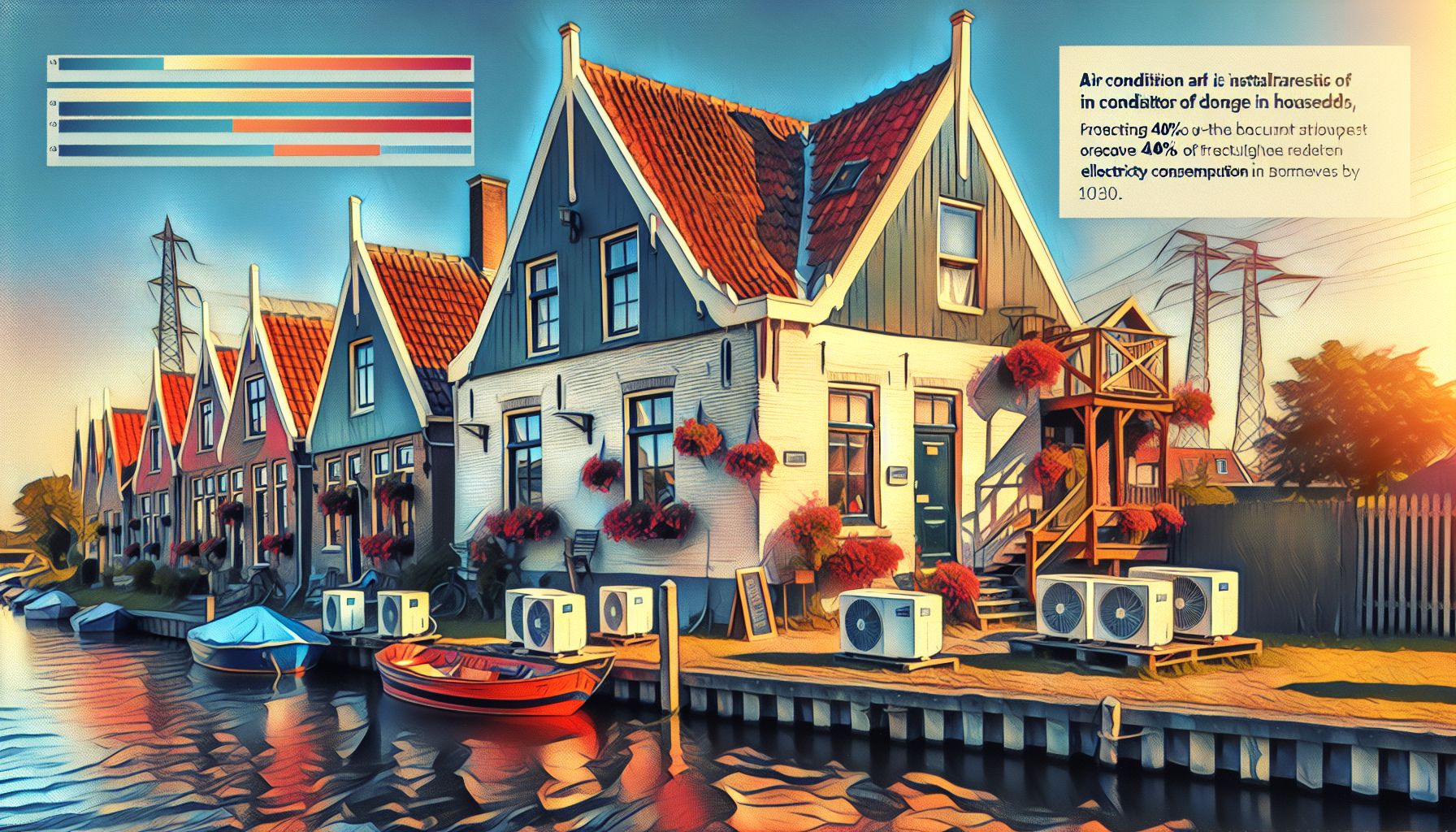Dutch Homes Embrace Air Conditioning, Challenging Energy Transition

Sittard-Geleen, Saturday, 12 October 2024.
TNO reports a surge in air conditioner installations in the Netherlands, projecting that over 40% of households will have AC by 2030. This trend could significantly increase electricity consumption, posing challenges for the country’s energy transition goals.
A Surge in Air Conditioner Installations
In recent years, the installation of fixed air conditioners in Dutch households has increased rapidly, as reported by TNO. Nearly 90% of these units have been installed in the past five years alone. By 2021, roughly 20% of households had an air conditioner, and TNO projects this will more than double to 40% by 2030[1]. This reflects a broader global trend where rising temperatures and climate change drive the demand for cooling solutions.
Implications for Energy Consumption
The growth in air conditioner usage is expected to have a significant impact on energy consumption. In 2022, air conditioning accounted for 1.6 petajoules of electricity use in Dutch homes. By 2030, this figure could rise to 4 petajoules, representing 5% of the residential electricity consumption[1]. This increase underscores the urgent need for sustainable cooling technologies to mitigate the environmental impact.
Global Perspective on Air Conditioning Demand
Globally, the demand for air conditioning is surging as well, particularly in regions experiencing extreme heat due to climate change. The International Energy Agency projects that the number of AC units will increase from 2.3 billion today to 5.5 billion by 2050, contributing to a substantial rise in global energy demand and carbon emissions[3]. This trend highlights the need for energy-efficient cooling technologies to address climate challenges effectively.
Innovations in Sustainable Cooling
Addressing the rising energy demands of air conditioning requires innovative solutions. Researchers are exploring the use of passive cooling techniques, such as improved building insulation and reflective coatings, which have been shown to reduce AC energy consumption by over 30%[5]. Such advancements are crucial in reducing the environmental footprint of increased cooling demands.
Conclusion: Balancing Comfort and Sustainability
As the Netherlands and the world face the dual challenge of providing comfort through air conditioning and maintaining sustainable energy practices, innovations in energy-efficient cooling will be key. The focus on sustainable cooling solutions presents an opportunity to align energy transition goals with the growing need for temperature regulation in homes.

